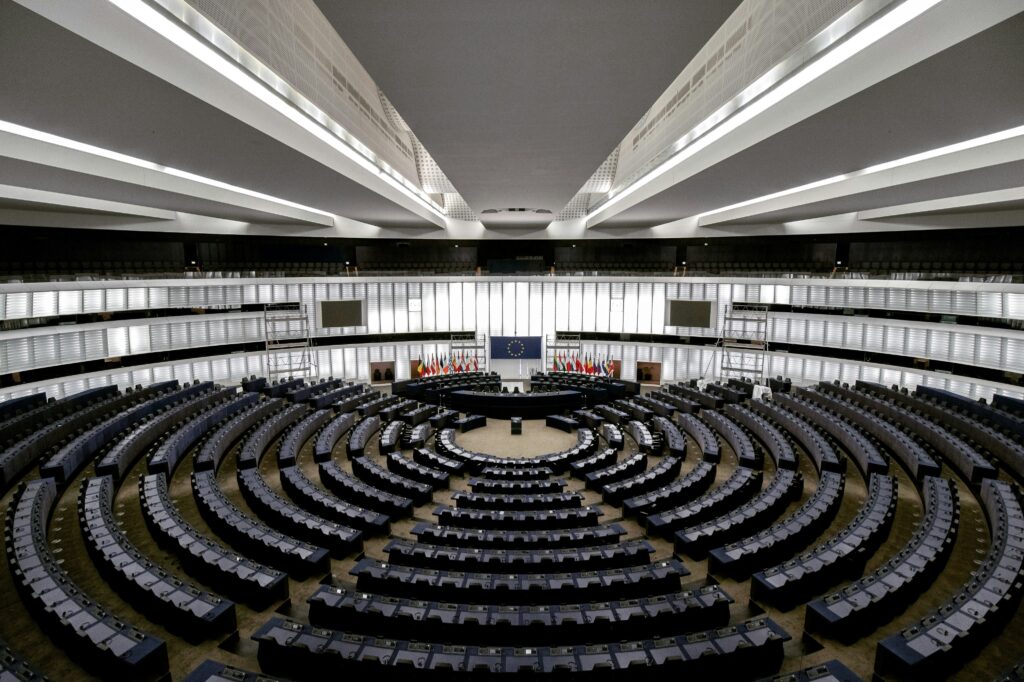European Commission President Ursula von der Leyen has announced a €200 billion investment to strengthen Europe’s position in the global artificial intelligence (AI) race. The announcement came during the Paris AI Summit, which was hosted by French President Emmanuel Macron. Von der Leyen’s statement aimed to reassure that Europe is still in the race to become a leader in AI.
“The AI race is far from over. Europe is not late,” she said, as she introduced the funding initiative. The investment is designed to help European companies build advanced AI systems to compete with American companies like ChatGPT and China’s DeepSeek.
A Step Toward Innovation
Startups across Europe have welcomed the €200 billion investment, especially those involved in AI development. One of the startup hubs, Station F in Paris, hosted many entrepreneurs who viewed the funding as an opportunity to fuel innovation in Europe’s technology sector. Yacine Jernite, the co-founder of Hugging Face, a prominent AI startup, voiced his approval of the EU’s move.
“AI should not only be the domain of large corporations,” Jernite said. He praised Europe’s focus on efficiency and regulatory compliance. His company, Hugging Face, has played a key role in the development of AI technologies like natural language processing. Jernite believes that Europe’s focus on fairness and transparency will give its AI systems a strong ethical foundation.
Europe’s Regulatory Advantage
Alongside funding, Europe has taken the lead in AI regulation. The EU has already introduced the AI Act, which aims to ensure that AI technologies are safe and respect privacy. The AI Act also ensures that these technologies are used ethically.
While many experts view this regulation as a step forward, some caution that too much regulation could slow innovation. This concern was raised during the Paris AI Summit, where US and UK representatives refused to sign the AI governance declaration. They were concerned that the EU’s strict regulatory approach might hinder collaboration.
Concerns About Strict Regulations
US Vice President JD Vance expressed his concerns about the European regulatory framework. He argued that over-regulation could slow AI progress and limit cooperation between the US and Europe.
“The goal should be collaboration, not isolation,” Vance said. He emphasized that while regulations are important, they should not stand in the way of rapid technological progress. Both the US and UK chose not to join the AI governance agreement at the Paris summit due to these concerns.
Collaboration with the US is Key
Many experts believe that AI entrepreneurs in Europe must work with US tech companies to achieve success. German AI expert Fabian Westerheide emphasized this point, saying, “European entrepreneurs must collaborate with US technology. If we isolate ourselves, we will fall behind.”
He pointed out that while Europe has strong regulations, it needs more infrastructure and resources to compete globally. Collaboration with US tech firms could help address these gaps and drive progress in AI development.
What’s Next for Europe’s AI Future?
The €200 billion investment shows that the EU is serious about AI. But how successful Europe will be in this competition depends on how it balances regulation with innovation. The EU needs to ensure that it doesn’t stifle progress while making sure AI technologies are safe and ethical.
The investment is a big step, but the real challenge will be how Europe navigates the complex issues of regulation and innovation. Will the EU be able to develop cutting-edge AI technologies while adhering to its strict regulations? That remains to be seen.
As Europe moves forward in the AI race, it must continue to focus on ethical AI development. The region’s commitment to transparency, fairness, and safety could give it a competitive edge. But it must also remain open to working with other countries, especially the US. Without collaboration, Europe risks falling behind in the global AI race.
For more updates on Europe’s AI plans and the latest in global AI developments, visit Newyork Mirror.


